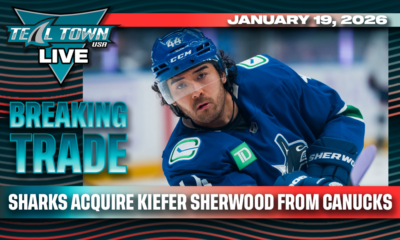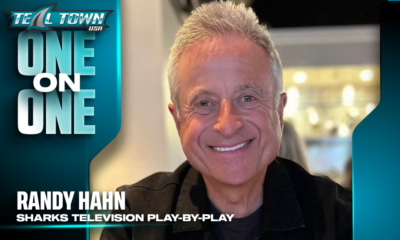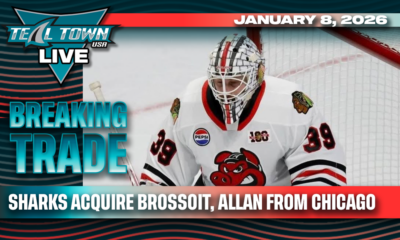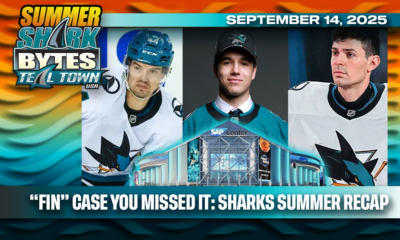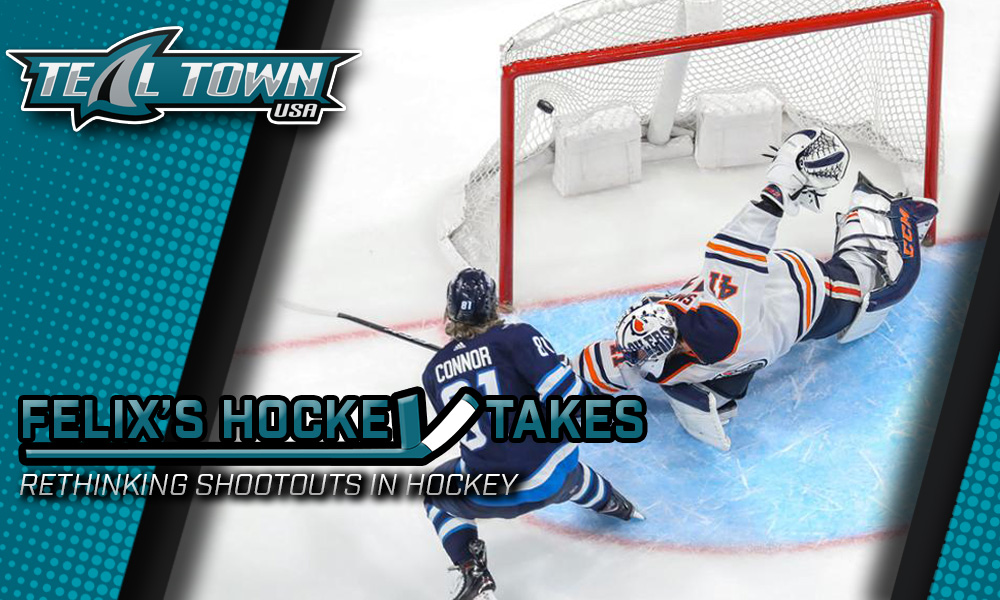
The Thrill of Sports
You know that feeling when you’re watching a game, heart pounding, on the edge of your seat? The anticipation is electric, the stakes are high, and you’re caught up in the thrill of the moment. Late in 2022, as I tuned into a climactic World Cup final showdown between Argentina and France, I was all in. The suspense was universal, the hype was real… but then, the ending.
The match concluded, and instead of the grand finale we were all craving, it was, well, anticlimactic.
Penalty kicks.
As my Twitter timeline reacted to Argentina emerging victorious, I came across a tweet that really caught my eye that I very much agree with.
Magical games like this shouldn’t be decided with a shootout. #teamgame #worldcup
— Hayley Wickenheiser (@wick_22) December 18, 2022
Both soccer and ice hockey, two thrilling team sports, have experienced the weight of crucial international matches hinging on a shootout. The 2018 Pyeongchang Winter Olympics immediately comes to mind, where the USA women’s national hockey team secured gold against Canada in a captivating showdown.
There is an argument for teams to decide the games in regulation or overtime. That way, a shootout wouldn’t even be necessary. But is the shootout truly a fitting way to determine the outcome of a sporting event? Let’s look at both sides of the argument.
The Case For Shootouts in Hockey
Make no mistake about it. The shootout brings a unique element to the game—a pulsating clash between shooter and goaltender that showcases a different facet of hockey prowess. In this skills competition within a team sport, the suspense is palpable, and the outcome hangs in the balance as players employ a blend of strategy, finesse, and sheer determination.
Whether it’s a quick deke that leaves the goaltender frozen, a perfectly placed top-corner shot, a backhand surprise through the five-hole, or a hopeful wrist shot that finds its way between the wickets, the shootout encapsulates the diverse range of offensive skills in hockey. It’s a microcosm of creativity and decision-making—a moment when players have the ice to themselves and the spotlight to shine.
The Case Against Shootouts in Hockey
For all the flack the NHL gets for having a shootout to decide games in the regular season, there is—thankfully—no shootout in the Stanley Cup Playoffs. Teams that are still tied after regulation go into 20 minutes of sudden-death overtime until there is a winner. That’s why we watch.
In the regular season, the shootout serves its purpose of resolving games within the constraints of a grueling schedule. But come playoff time, the dynamic changes. The stakes are higher, the pressure is palpable, and the rhythm of the game shifts as players dig deep, summoning every ounce of skill and determination. It’s a celebration of resilience, teamwork, and the artistry of the sport.
The absence of shootouts in the Stanley Cup Playoffs underscores the reverence we hold for the tradition and spirit of hockey. It recognizes that certain victories shouldn’t be determined by a simple skills competition, but rather earned through a collective effort that unfolds over time. The 20-minute overtime periods—where every shot, every save, and every rush can write history— embody the essence of hockey.
It’s in these moments that we realize how much we value the beauty of prolonged battles, the strategy woven into each shift, and the suspense that builds as the game teeters on a knife’s edge. This is the essence of the sport—an unfolding saga on the ice that captivates us and keeps us coming back for more.
Even with the shift towards more structured play in 3v3 overtime during the regular season, the question lingers: why opt for multiple rounds of shootouts when a mere 5-minute span of breakaways and odd-man rushes could infuse overtime with more excitement and genuine gameplay?
Rethinking the Points System
As we navigate the discourse surrounding shootouts, the points system emerges as a pivotal aspect that can shape the outcome of games. Let’s explore two distinct paths: one with a shootout and one without, each presenting its own set of benefits and considerations.
Alternative #1: Points System with a Shootout
In this scenario, the shootout remains a factor, but the points system is reimagined to reward a more nuanced performance:
- Regulation Win: 3 points
- Overtime or Shootout Win: 2 points
- Overtime or Shootout Loss: 1 point
- Regulation Loss: 0 points
Within this alternative, the points system undergoes a transformative shift that celebrates the essence of hockey’s competitive journey. Elevating the value of a regulation win to 3 points underscores the determination to secure victory within the standard 60 minutes.
This approach encourages teams to fully engage in the strategic dance on ice, embracing the purity of the sport’s core while actively seeking decisive triumphs. Meanwhile, the allocation of 2 points for an overtime or shootout win recognizes the heightened intensity of extended play, with an additional point granted to the victor.
By incorporating a 3-point system where a team is awarded 3 points for a regulation win, 2 points for an overtime or shootout win, 1 point for an overtime or shootout loss, and 0 points for a regulation loss, the emphasis shifts from settling for a mere consolation point to pursuing victory in both regular and extended gameplay. This alternative approach encourages teams to redefine success by striving for victory in all circumstances, reinforcing the essence of competition and triumph in hockey.
Alternative #2: Points System without a Shootout
Imagine a points system that places emphasis solely on the outcome achieved during regulation play:
- Regulation Win: 3 points
- Regulation Loss: 0 points
This is more in line with what fans want today. It completely does away from the traditional loser point, ensuring a fairer balance to the playing field. By eliminating the shootout, this alternative magnifies the importance of regulation wins, urging teams to compete relentlessly for victory in the allotted time. This approach fosters a heightened sense of urgency and strategic engagement, aligning with the purity of the sport.
It also reintroduces ties. For years, I’ve staunchly stood against the idea of ties in hockey, believing that every game should have a clear winner. While the concept of ties has long been a point of contention, it’s worth considering as a potential compromise—one that preserves the strategic brilliance and endurance of the game while acknowledging the necessity for practicality.
What Do the Fans Think?
To gauge public sentiment on the divisive topic of shootouts in hockey, I turned to a Twitter poll. The results were overwhelmingly clear—fans overwhelmingly desire the removal of shootouts from the game. This consensus underscores the fans’ commitment to preserving the sport’s essence and competitiveness. The resolute stance of the fans serves as proof that the current approach needs to be reevaluated, as it stands in stark contrast to the collective vision and aspirations of those who fuel the sport’s passion.
A Call for Change
As the debate rages on about the role of shootouts in deciding the outcome of hockey games, the resounding voice of fans and the evidence of alternative solutions come together to form a compelling narrative for change. From the climactic World Cup final between Argentina and France to the impassioned opinions of diehard hockey fans, it’s clear that the current system is out of step with the core values of sports.
The case against shootouts is not an indictment of their entertainment value or the skills of players. It’s an affirmation that the spirit of hockey thrives in the grace of teamwork, strategy, and the determined quest for victory within regulation. The shootout, while dramatic, lacks the resonance of a true competition.
The solution lies in acknowledging the collective desire for change and taking the time to address those desires appropriately. Both at the international level and within the NHL, the time has come to forge a new path—one that abolishes the shootout in favor of alternatives that honor the integrity of team sports. The fate of international tournaments should not be determined by the dramatics of a penalty shootout, and the NHL must uphold its legacy as the pinnacle of hockey competition by reflecting the demands of its fanbase.
With every drop of the puck, every deafening cheer, and every heart-pounding moment, the spirit of hockey guides us onward. The time has come to heed that call, embrace change, and evolve the game into a genuine representation of its exceptional essence. Together, we have the opportunity to shape a future where the outcome of hockey contests is determined by the very qualities that render the sport remarkable—propelling it forward and ensuring its growth for generations to come.













